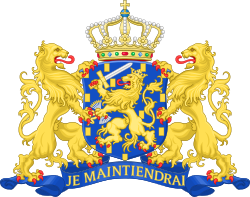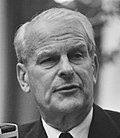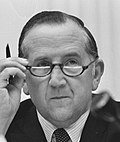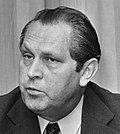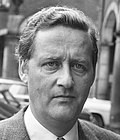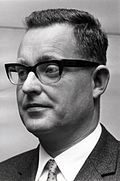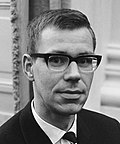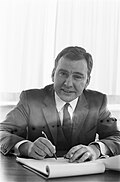Ministers Title/Ministry /Portfolio(s) Term of office Party Barend Biesheuvel (1920–2001) Prime Minister General Affairs 6 July 1971 – [Retained] Anti-Revolutionary Roelof Nelissen (1931–2019) Deputy Finance 6 July 1971 – [Retained] Catholic Minister Molly Geertsema (1918–1991) Deputy Interior 6 July 1971 – [Retained] People's Party for Minister Norbert Schmelzer (1921–2008) Minister Foreign Affairs 6 July 1971 – [Retained] Catholic Dries van Agt (1931–2024) Minister Justice 6 July 1971 – [Retained] [Continued] Catholic Harrie Langman (1931–2016) Minister Economic Affairs 6 July 1971 – [Retained] People's Party for Hans de Koster (1914–1992) Minister Defence 6 July 1971 – [Retained] People's Party for Dr. Louis Stuyt (1914–2000) Minister Health and 6 July 1971 – [Retained] Catholic Jaap Boersma (1929–2012) Minister Social Affairs 6 July 1971 – [Retained] [Continued] Anti-Revolutionary Chris van Veen (1922–2009) Minister Education and 6 July 1971 – [Retained] Christian • Higher 21 July 1972 – [Retained] Bé Udink (1926–2016) Minister Transport and 21 July 1972 – [Retained] Christian Minister Housing and 6 July 1971 – [Retained] Pierre Lardinois (1924–1987) Minister Agriculture and 5 April 1967 – [Retained] [Appt] Catholic People's Party Jaap Boersma (1929–2012) 1 January 1973 – [Acting] Anti-Revolutionary Party Piet Engels (1923–1994) Minister Culture, Recreation 6 July 1971 – [Retained] Catholic Ministers without portfolio Title/Ministry /Portfolio(s) Term of office Party Pierre Lardinois (1924–1987) Minister Interior • Suriname and 28 January 1972 – [Retained] [Appt] Catholic Molly Geertsema (1918–1991) 1 January 1973 – People's Party for Dr. Kees Boertien (1927–2002) Minister Foreign Affairs • Development 6 July 1971 – [Retained] Anti-Revolutionary State Secretaries Title/Ministry /Portfolio(s) Term of office Party Tjerk Westerterp (1930–2023) State Secretary Foreign Affairs • European Union Benelux 17 August 1971 – [Retained] [Res] Catholic Willem Scholten (1927–2005) State Secretary Finance • Fiscal Policy Tax and Customs 14 July 1971 – [Retained] [Res] Christian Fons van der Stee (1928–1999) • Governmental 14 July 1971 – [Retained] [Res] Catholic Hans Grosheide (1930–2022) State Secretary Justice • Immigration Civil Law Penitentiaries 28 July 1971 – [Retained] Anti-Revolutionary Jan Oostenbrink (1936–2025) State Secretary Economic Affairs • Small and Tourism 17 July 1971 – [Retained] Catholic Vice admiral Adri van Es (1913–1994) State Secretary Defence • Human Equipment 14 August 1963 – [Retained] [Res] Anti-Revolutionary Koos Rietkerk (1927–1986) State Secretary Social Affairs • Social Security Occupational 28 July 1971 – [Retained] [Res] People's Party for Kees Schelfhout (1918–1983) State Secretary Education and • Primary Special Preschool 28 July 1971 – [Retained] Catholic Dr. Roelof Kruisinga (1922–2012) State Secretary Transport and • Public Water Postal Service Weather 28 July 1971 – [Retained] [Res] Christian Werner Buck (1925–2010) State Secretary Housing and • Urban Planning Spatial Planning 17 August 1971 – [Retained] Catholic Henk Vonhoff (1931–2010) State Secretary Culture, Recreation • Social Services Disability Policy Youth Care Culture Art Sport 28 July 1971 – [Retained] [Res] People's Party for Source: (in Dutch) Rijksoverheid 

